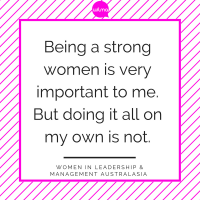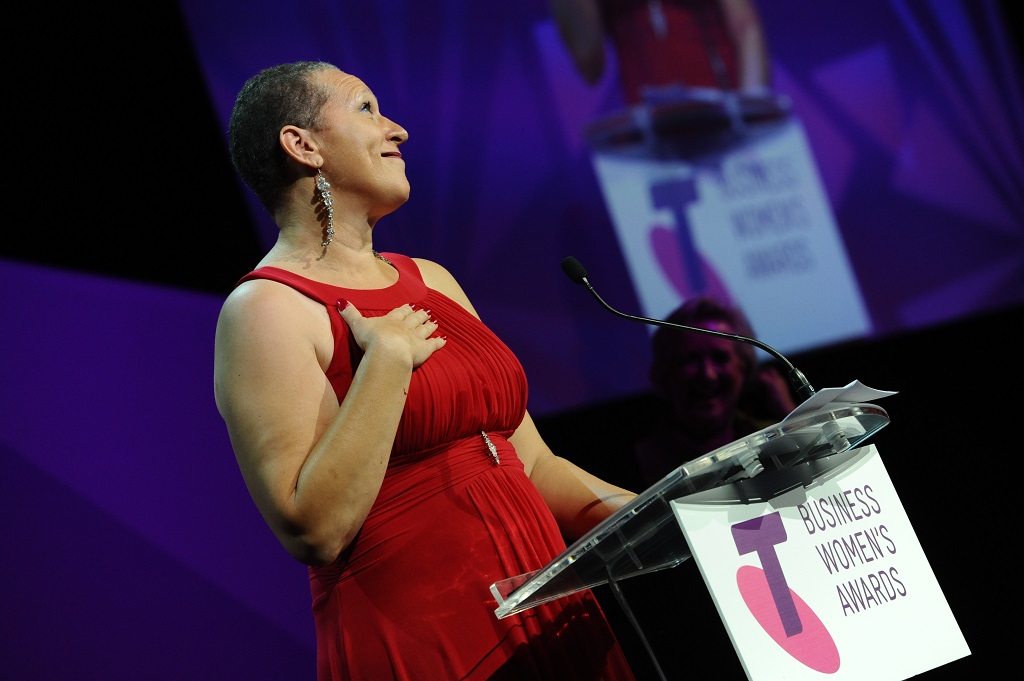David Gonski has always had a long queue outside his office – as a Freehills partner, at his corporate advisory firm and, today, as a pre-eminent chairmen. Leading director Maxine Brenner, remembers waiting outside his Investec office at Chifley Tower in Sydney when a young woman – a newly recruited receptionist at the investment bank – joined her.
Brenner tells the story: “I asked, ‘Do you have a message for David? Do you want me to take it in for you?’ And she said, ‘No, no. David said hello to me the other day and asked me how I was enjoying Investec and how my career was going. He was so nice that I’ve decided to come down to him and ask him for some career advice.‘”
When Brenner (a director of Origin Energy and Qantas Airways, among others) saw the young receptionist the next day she asked how it had gone. “The receptionist said, ‘Oh, he was fantastic. He spent half an hour with me and told me exactly what I should do with my career’,” laughs Brenner, who was offered a job by Gonski at what is now Herbert Smith Freehills, after she topped the university class he guest lectured.
BOSS has spoken to more than a dozen powerful men and women who have been offered a job by Gonski, or been recommended for a board role through his extensive network or who have sought out Australia’s most connected businessman for career advice. Executives Gonski has mentored occupy some of Australia’s most senior C-suite positions. Many may have risen to their positions without Gonski’s influence but many credit the ANZ and Coca-Cola Amatil chairman with the speed and extent of their ascents.
Says Brenner: “There’s never a time I go out somewhere that I don’t have one or two women saying, ‘Oh, I just saw David last week.’ And I say, ‘What, just in passing?’ and they say, ‘No, no. He was giving me some advice.‘”
Catherine Brenner, a director at AMP, Coca-Cola and Boral and Maxine’s sister-in-law, says Gonski is interested in promoting talent, wherever it comes from and however it is packaged. “The number of times he has said to me, ‘Person X is worth bearing in mind’,” Brenner says. “So he is very good at getting people’s names out there if he thinks they are good. And he is a very good judge of what an organisation needs and of people’s potential.
“He comes to it without a lot of the unconscious bias. If he believes that someone is right, he won’t wait for them to be acclaimed as the best possible candidate by the press or investors. He will back them.”
THE GONSKI CHAMBERS
Key to Gonski’s influence on the Australian corporate scene is his powerful network of non-executive directors, who work together in Sydney, leasing space from investment bank UBS at Chifley Tower, in what has been described as a sort of barrister’s chambers for directors. There are up to 20 directors with offices there, including Jillian Segal, Peter Joseph, Maxine Brenner, Roger Corbett, Robert Milliner and Peter Mason.
Jillian Broadbent, the University of Wollongong chancellor and the Clean Energy Finance Corporation chair, has had an office next to Gonski for nearly 16 years. “When I first finished at Bankers Trust, David said, ‘Someone has just moved out of my office, do you want to come here?’ Then when Investec took over [Gonski’s firm] Wentworth Associates, David said, ‘Can you find an office for [Jillian]?’ and that’s when he decided to lease out some more office space to directors.”
Their working relationship has been a source of strength through Gonski’s most difficult public controversies. Gonski came under fire in 2011 as chairman of the ASX when the federal government blocked its proposed merger with the Singapore Stock Exchange. One political insider claims that Gonski “blindsided” former treasurer Wayne Swan with the deal, leaving the government no choice but to block the merger and exposing Gonski’s “political inexperience”.
He was also caught in the middle of a political storm in 2012 after his appointment as chairman of the government’s $73 billion Future Fund, having led the committee’s search for former chairman David Murray’s replacement. The circumstances sparked fellow Fund guardian and former treasurer Peter Costello to label them a “shemozzle”. And Gonski’s school funding report became a political football in the lead-up to the 2013 federal election, forcing him into the public arena to defend his report.
Broadbent says when she was facing her own battle with the federal government over scrapping the Clean Energy Finance Corporation, Gonski sympathised about the challenges of being a public figure: “You only have to wander in and say, ‘Sometimes I find this so disheartening’, and David says, ‘Yeah, but it’s got to be done and it’s got to be done by people who do it well.‘
“I’ve said the same things to him about the Gonski [school] reforms. When he says, ‘I’ve got to go do this thing or put up with that,’ I say, ‘Look, you’ve got to do it and it has to be done.’ So we do that to each other because we both have this commitment to putting in the hard yards for a public policy purpose.”
A former member of the board of the Reserve Bank and director of SBS, Broadbent says Gonski persuaded her to take on more public roles. “I don’t think becoming chancellor of the University of Wollongong would have happened if I hadn’t heard David saying so many times that he loved being the chancellor of the University of NSW,” she says. “So when the opportunity came up, I wandered into David’s office and said: ‘I don’t know if I want to do this, it is only that you say you enjoy so much.’ And he gave me the whole sales pitch on being a chancellor and convinced me to take the job.”
A long career spent navigating the highs and lows of corporate and public life has shaped Gonski into an acute judge of character, including his own. Reflecting on his own strength and weaknesses, the 61-year-old says: “I realised almost on the first day of starting at Freehills that I was someone who could make deals happen, rather than someone who can actually say, ‘That’s where the deal should be’. I think that hopefully helps me to be a good director and chairman, but at the same time I’m not sure that it makes you a great entrepreneur,” he tells BOSS.
CULTURAL PHILANTHROPY
Gonski’s influence on the careers of business, arts and not-for-profit executives has been profound. The recently retired chief executive of Philanthropy Australia, Louise Walsh,met Gonski as a “baby lawyer” at Allens Arthur Robinson before working on the Sydney Olympics bid and later joining the Sydney Symphony. Her career was at a crossroads when she sought Gonski’s advice, thinking of re-entering the corporate sector.Walsh remembers Gonski asking whether she would consider joining the Australia Council and heading a business unit devoted to growing cultural philanthropy.
“He said, ‘I’ve got no idea how you are going to do it, but you can write the business plan and I’ll open up the doors for you.’ Here I was, coming for a bit of career advice, and he was offering me a job.” Nine years later, Walsh and Gonski had facilitated more than $80 million in new philanthropic funding for the arts. “He’s a good listener: very focused and lateral. I suppose it’s the investment banker in him, always structuring deals and connecting people.”
Walsh believes one of Gonski’s biggest legacies is the introduction of private ancillary funds, which have become one of the most popular forms of charitable trusts for high-wealth families and make up more than $2billion in philanthropic giving. “He was the one who went to John Howard through the Prime Minister’s Community Business Partnership in the late 1990s and convinced Howard to introduce them. They were introduced in 2001 and there are now about 1200 of them.”
TALKING ABOUT THE ARTS
Walsh says Gonski’s lateral thinking and quirky sense of humour inspired her to launch a series of fundraisers with Gonski in conversation, firstly with Cate Blanchett and Andrew Upton, then Kerry Stokes and, last year, Frank Lowy. “He’s a fantastic interviewer because he’s a great listener,” Walsh says. “He does a lot of preparation and he talks to a lot of people who he thinks would have questions.”
Last November, Frank Lowy revealed in conversation with Gonski that he and his family had been responsible for giving away $350 million over the past 10 years. It brought the house down. “There was no way Frank Lowy would have revealed that to anyone else and there’s no way Stokes would have done the event if it weren’t for Gonski,” Walsh says.
It was the board position of Gonski’s wife, Boston-born dermatologist Orli Wargon, at the Belvoir Street Theatre Company and the theatre’s relationship with director Neil Armfield that sparked Gonski’s connecting with Hollywood actress Cate Blanchett, which fostered yet another unlikely friendship.
“He creates an environment where people feel inwardly compelled to step up,” Blanchett says, prepared to speak only because of her fondness for the man who chaired the Sydney Theatre Company during her stewardship. “He not only identifies the elephant in the room, he shakes its hand,” she says. “He acts like a tuning fork for conversation – invisibly, subliminally uniting often disparate voices whilst losing none of the complexity a diverse group of thinkers can offer.”
GENDER CHAMPION
Broadbent says Gonski’s lack of gender bias has made him an unexpected champion for diversity in established corporate networks.
Broadbent remembers working with Gonski on the Coca-Cola Amatil board, examining succession planning, when they discovered there were no women among the top 40 executives. “I said, ‘There is something wrong here, isn’t there? We have to have it on the agenda. Let’s look at the [Equal Opportunity for Women] report.’ Someone dug down in the drawer and found this report and then CEO Terry Davis looked at it and was so embarrassed. He said, ‘I’m obviously not very good at this. I’m going to make this a KPI of one of my direct reports.‘ ”
Within two years, Coca-Cola Amatil had six women among its top 20 executives. Davis has since retired and ex-GrainCorp CEO Alison Watkins, who served with Gonski on the ANZ board, has replaced him.
NAB and ASX director Jillian Segal has known Gonski since their families emigrated from South Africa in the 1960s. She rejects any suggestion the promotion of Gonski’s network members to top boards has created his own clique. “He doesn’t support or promote anyone who doesn’t have the requisite skills or talent,” she says. “I think he is very keen to support young people and make sure organisations have the benefit of new ideas.”
MENTORING MASTERCLASS
Peter Joseph, fellow director and another long-time “working neighbour” at Chifley Tower, confirms “there is often a procession of people waiting to see him and it is not just the good and the great, they are from all walks of life“.
Lawyer and banker Ilana Atlas was formally mentored by Gonski through the Australian Institute of Company Directors’ program in 2011 and now sits on Gonski’s board at Coca-Cola, as well as the Westfield and Suncorp boards. She says Gonski’s mentor abilities have three key attributes. First, he always finds the time: “You send him a text, he will always make himself available.” Second, he gives direct, useful suggestions: “He goes out of his way to know you, your aspirations and background, so his advice is very specific to you.” Third, he’s an advocate for those he mentors.
Others who echo these comments about Gonski opening doors for them include ASX company secretary Amanda Harkness who met Gonski as a young lawyer at Freehills; director of Breville, Investec Property and Premier Investments Sally Herman who was also formally mentored by Gonski through the AICD program; and IAG, Westpac and Cochlear director Alison Deans. The chief executive of the Sydney Opera House, Louise Herron, vividly remembers Gonski’s 50th birthday party at a Sydney restaurant with about 50 assembled guests. “In his speech he referred to every single person in the room and the impact they had made on his life. It took my breath away,” she says.
MANAGEMENT STYLE
Herron, a former lawyer and corporate adviser, is among a handful of people who have worked directly for Gonski – largely a solo operator – and so knows his most intimate working secrets. He gets to work at 7am and leaves at 7pm every day. He doesn’t drink coffee and is a very moderate eater.
Meetings don’t go for more than 45minutes. He takes one or two notes, if anything, and returns phone calls within an hour or two. “You think, ‘How can a guy who is so busy be so on top of his material all the time?’ That’s the phenomenal thing about David, how disciplined and self-reliant he is,” Herron says. “You never really see him with his head buried in massive documents. He seems to float above everything and to know everything that is below him.”
Herron describes Gonski’s management style as “loose, tight” and says his “genius” is his light touch. He also works very well with mentees because “he has no traces of being a bully. He has a very light touch. He’ll let you go off loose for as long as you like but if he thinks that you are straying too far he will really tighten the reins. He’s very effective at loose, tight.
“There are albatrosses: people who fly in, shit on you from a great height and then leave. He’s not an albatross. He flies in over the top, checks everything is OK, makes one or two amendments and then moves on and light touches everything as he goes. He knows exactly what is going on and never interferes. No one else does that.”
HONEST ADVICE
During the turbulent 1980s and ’90s, Gonski became the trusted confidant to leading business figures, including Frank Lowy, Kerry Packer and Rupert Murdoch and earned a reputation for good judgment, lateral thinking and facilitating big deals.
Gonski believes the secret to his success has been providing frank and fearless advice – which isn’t the same as telling the moguls they are wrong. “I doubt I’ve ever said to anybody they’re wrong and there have probably been very few times when I’ve ever thought somebody was categorically wrong. Another way to answer the question if you believe they are going in the wrong direction is to say, ‘You know, another way of doing that is this …’,” the always diplomatic Gonski says.
“The one thing I’ve learnt from my long time in business is that people actually want objective advice. They may get cantankerous and upset because it is not what they want to hear, but I reckon it takes them, particularly the clever ones, about a minute to realise they have to think about it.”
There are some things Gonski doesn’t like to hear, either, from people seeking his views. His pet hates are burnt-out men looking to wind back their work life, or women looking at a board role as a lifestyle option. His view is that a career as a non-executive director is a profession like any other. Sometimes the best suggestion he offers is not to proceed at all.
“If people come to you for advice, often you want to be nice,” Gonski says. “But I’ve learnt that you’ve got to be honest; the best advice is honest advice. If you think they are doing it too early, for the wrong reasons or are just not up to it, you have to tell them.”
MENTORING TIPS
Mentor early and mentor often, the experts say.
David Gonski warns people not to take their boss as their mentor. “The best mentors are people who don’t have it in their interest to advise you in a particular way. Therefore, I’m not totally convinced that your boss can be your mentor because if you’re great, the boss really wants you to stay as their underling because you make them look good,” he says.
Gonski’s other golden rule is to take different mentors for the different life stages but also to use multiple mentors to achieve a range of goals. “I had a mentor for my professional life, [the late] former NSW Supreme Court judge Kim Santow, but I also sought out, for example, a mentor for philanthropy.” Gonski has taken on a young mentor at ANZ, where he is chairman, to help him master his social media skills.
The president of the Australian Human Resource Institute and author of Make Mentoring Work, Peter Wilson, is mindful of the particular problems women face in seeking a mentor.
“Women need to break the mindset that if they complete a job well and on time they will automatically be promoted,” he says. “Women underestimate the importance of networking, they don’t see the need for it as much as men and a mentor can be critical in that process.”
Wilson interviewed 90 leaders about mentoring for his book and says leading identities, such as former High Court judge Michael Kirby and former Wallabies captain John Eales, continue to seek out new mentors even now.
He suggests the “humble and innocent” approach of telling a potential mentor you have an issue and would like to pick their brains if they have 10 minutes for a coffee. “The generosity of spirit in corporate Australia is very high so you can expect a positive response in 90 per cent of cases. It sounds simple but you’ve got to have the guts to do it.”
Wilson’s other advice is to present a mentor a specific problem, question or set of goals, rather than leaving it open ended. “It is no good meeting someone and saying, ‘I’ve been a lawyer at a bank for 10 years and I don’t know what to do with my career’,” he warns.
This article was originally published on Australian Financial Review 13th February. Read the original article here.









Leave A Comment